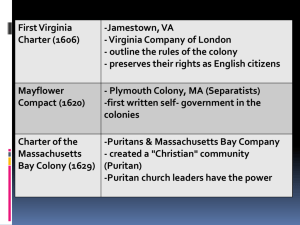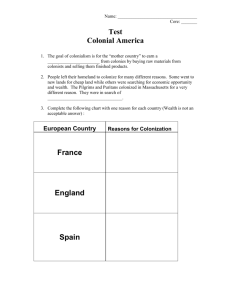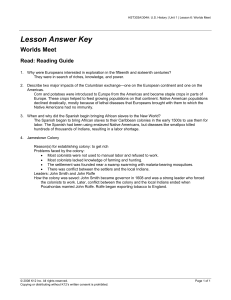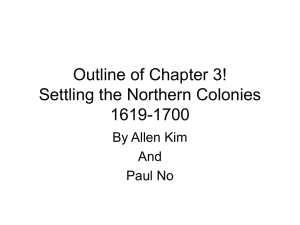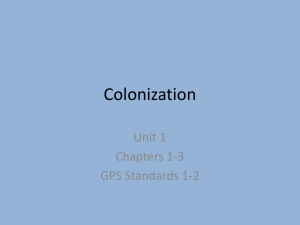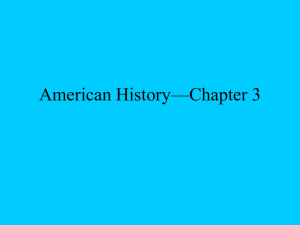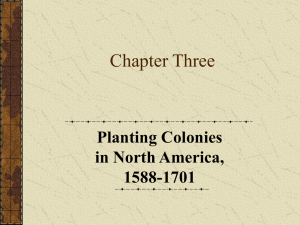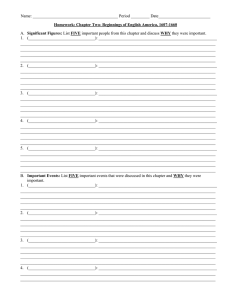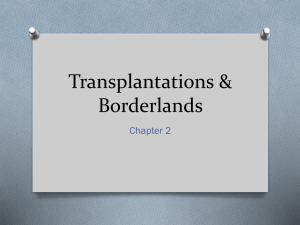New England Colonies Colonies: What colonies are included in this
advertisement
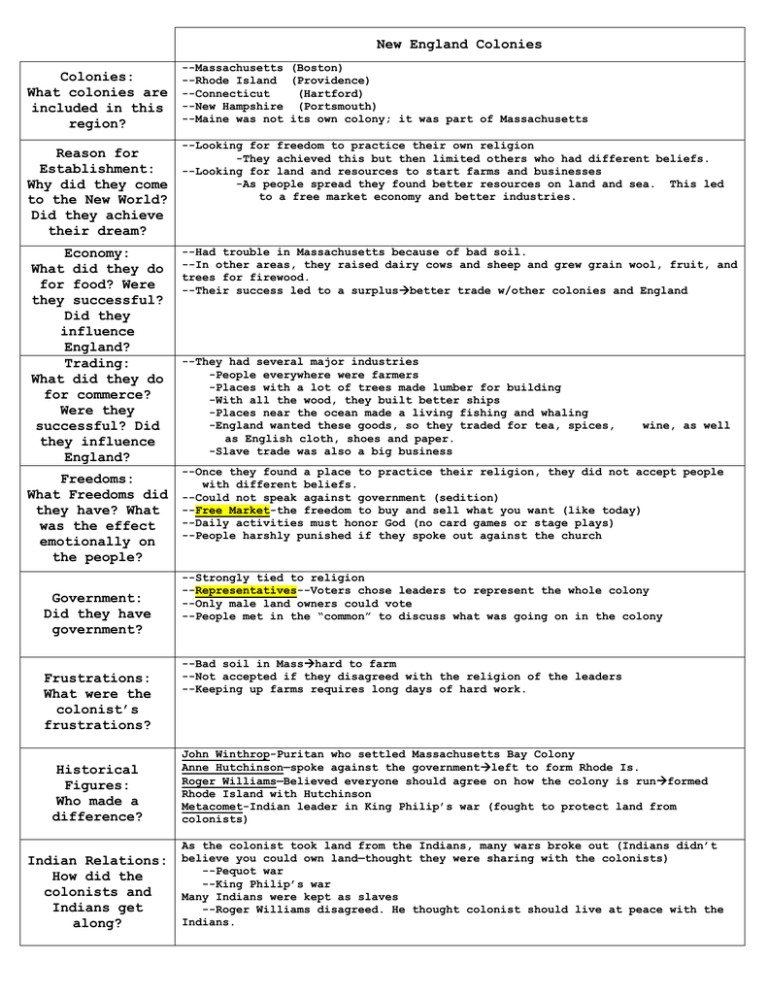
New England Colonies Colonies: What colonies are included in this region? --Massachusetts (Boston) --Rhode Island (Providence) --Connecticut (Hartford) --New Hampshire (Portsmouth) --Maine was not its own colony; it was part of Massachusetts --Looking for freedom to practice their own religion Reason for -They achieved this but then limited others who had different beliefs. Establishment: --Looking for land and resources to start farms and businesses -As people spread they found better resources on land and sea. This led Why did they come to a free market economy and better industries. to the New World? Did they achieve their dream? Economy: What did they do for food? Were they successful? Did they influence England? Trading: What did they do for commerce? Were they successful? Did they influence England? Freedoms: What Freedoms did they have? What was the effect emotionally on the people? Government: Did they have government? Frustrations: What were the colonist’s frustrations? Historical Figures: Who made a difference? --Had trouble in Massachusetts because of bad soil. --In other areas, they raised dairy cows and sheep and grew grain wool, fruit, and trees for firewood. --Their success led to a surplusbetter trade w/other colonies and England --They had several major industries -People everywhere were farmers -Places with a lot of trees made lumber for building -With all the wood, they built better ships -Places near the ocean made a living fishing and whaling -England wanted these goods, so they traded for tea, spices, as English cloth, shoes and paper. -Slave trade was also a big business wine, as well --Once they found a place to practice their religion, they did not accept people with different beliefs. --Could not speak against government (sedition) --Free Market-the freedom to buy and sell what you want (like today) --Daily activities must honor God (no card games or stage plays) --People harshly punished if they spoke out against the church --Strongly tied to religion --Representatives--Voters chose leaders to represent the whole colony --Only male land owners could vote --People met in the “common” to discuss what was going on in the colony --Bad soil in Masshard to farm --Not accepted if they disagreed with the religion of the leaders --Keeping up farms requires long days of hard work. John Winthrop-Puritan who settled Massachusetts Bay Colony Anne Hutchinson—spoke against the governmentleft to form Rhode Is. Roger Williams—Believed everyone should agree on how the colony is runformed Rhode Island with Hutchinson Metacomet-Indian leader in King Philip’s war (fought to protect land from colonists) As the colonist took land from the Indians, many wars broke out (Indians didn’t Indian Relations: believe you could own land—thought they were sharing with the colonists) --Pequot war How did the --King Philip’s war colonists and Many Indians were kept as slaves Indians get --Roger Williams disagreed. He thought colonist should live at peace with the Indians. along?

